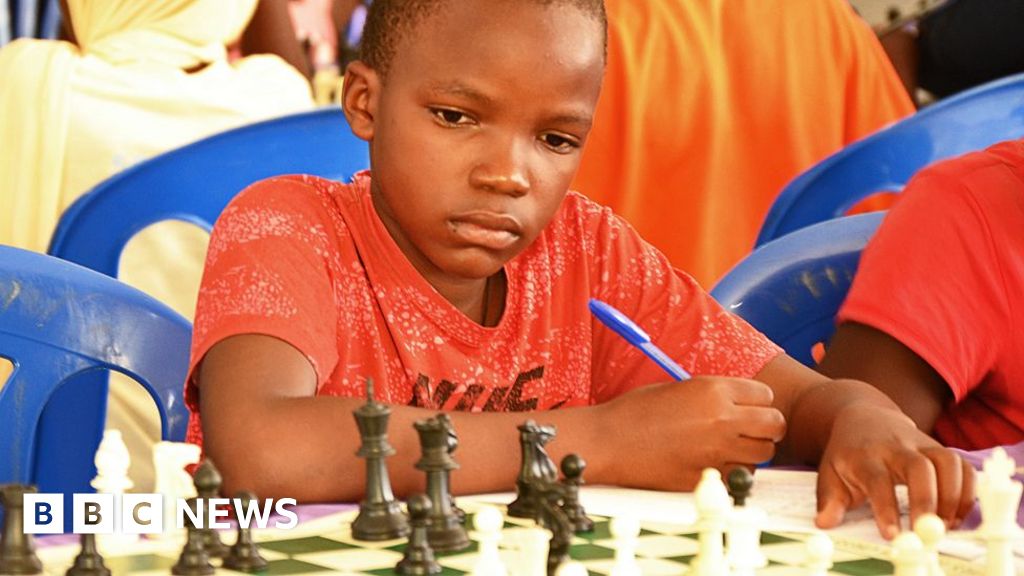Thousands of Wall Street big shots crowded into the Javits Center Monday night for the annual Robin Hood gala. Founded in 1988, Robin Hood is one of New York’s largest anti-poverty groups, and its yearly fund-raiser lures the city’s deepest pockets for a night that results in millions in grants.
A sea of men in navy jackets and brown oxfords filed through metal detectors to enter the cavernous hall, which was decked out with sports-themed decorations that included a giant inflatable basketball and baseball mitt. Thirsty bankers and hedge fund managers ordered vodka tonics and pours of Johnnie Walker Black Label at a bar housed in a soccer net. Boxers standing on small podiums jabbed at bright green punching bags that read “#fightpoverty.”
After a marching band and a cheerleading squad performed, some 3,500 guests filed into an arena-like dining hall filled with hundreds of tables populated with sports, politics and finance figures. They included the National Football League’s commissioner Roger Goodell, the former N.F.L. quarterback Colin Kaepernick, the philanthropist Laurie M. Tisch and former Mayor Michael Bloomberg. Serena Williams sat beside her husband, Alexis Ohanian, one of the founders of Reddit and a Robin Hood board member.
As the former New York Giants quarterback Eli Manning tucked into a plate of fried chicken, he considered the importance of giving back.
“This city is filled with the people who root for me and who have rooted for me,” Mr. Manning said, “and I think all New York athletes and sports teams have a responsibility to give back.”
Across the arena, Mr. Bloomberg took his seat near Ms. Williams.
“There are always people worse off than you are, and there are always people who need help,” Mr. Bloomberg said. “But when New York reaches out, it’s a generous city.”
Walking toward the men’s bathroom, as basketball fans nodded at him with deference, was the former Knicks power forward Charles Oakley.
“Sure, some get into philanthropy for write-offs, but some of us grew up around giving back,” Mr. Oakley said. “For me, it goes back to growing up in Cleveland and Alabama, and how my mother and grandmother always had people into their home for the holidays. Everyone knew you could go to them for a hot meal, whoever you were.”
Lights dimmed when Michael Strahan, the former New York Giant, took the stage to help loosen the crowd’s pocket books.
“This is what they call the Super Bowl of philanthropy,” he said. “We’re going to raise a lot of money tonight.”
“We’re facing New York’s toughest opponent: poverty,” he continued. “So if the Robin Hood spirit hits you, there are Q.R. codes on your table for you to give. Do not be shy.”
The event generated $72 million, according to a statement from Robin Hood. That figure included ticket sales, cash donations, pledges and annual gifts from donors motivated by the benefit.
Richard Buery Jr., Robin Hood’s chief executive, introduced a film about the organization’s work with the nonprofit Henry Street Settlement, which documented its aid to several generations of a Lower East Side family, the Quezadas. When the film ended, he appeared under a spotlight beside the Quezadas in the crowd.
The night would end with a private concert from the Weeknd, but the dinner’s performers included the country music singer Keith Urban and the magician Oz Pearlman, who encouraged the crowd to donate more after each of his increasingly impressive feats of mentalism.
Seth MacFarlane, the creator of “Family Guy,” delivered a roast. “It took a lot of planning to get this event together tonight, and a fabulous event this is,” he said. “And now, we’re all here working together to fix a problem that any one of you could fix by selling your beach house, and not even one of your good ones.”
When he quipped about groups of financiers on dates with younger women, he drew more uncomfortable laughs.
Paul Tudor Jones II, the billionaire hedge fund manager and one of the founders of Robin Hood, eventually took the stage to address challenges being endured by nonprofits in the face of funding cuts from the Trump administration.
“Now confronting us, the next great challenge is going to be the great poverty crisis,” Mr. Jones said, pacing about the platform. “You don’t have to be in the prediction business, if you read the papers and hear about the budget cuts, to know what’s coming.”
The crowds finally filed back out to a concert stage prepared for the Weeknd. As the pop star began gyrating and performing for the crowd, which resembled a massive Wall Street happy hour gathering, his audience danced stiffly to hits like “Blinding Lights” and “Can’t Feel My Face.”
One of the gala’s guests, Pat Kiernan, the longtime morning anchor for the local cable news station NY1, considered what giving back meant as a New Yorker.
“We don’t live behind windshields to each other’s lives in this city,” Mr. Kiernan said. “We’re among each other out on the streets and in the subways. So if you have money in your pocket you can take out, you’re going to take that chance to help your fellow New Yorker.”
Source link


















